Sustainable Microfinance - Balanced Scorecard's added value for ...
Sustainable Microfinance - Balanced Scorecard's added value for ...
Sustainable Microfinance - Balanced Scorecard's added value for ...
You also want an ePaper? Increase the reach of your titles
YUMPU automatically turns print PDFs into web optimized ePapers that Google loves.
6.2.4. Sustainability Entrepreneur<br />
Theory suggested that small businesses are a critical component of the global<br />
economy. Policy makers generally believe that small businesses play a crucial role in<br />
reducing unemployment and generating economic growth (Council <strong>for</strong> microfinance,<br />
2007; Lämmermann et al., 2007; Molenaar, 2009). This view has been contested by<br />
other theory, since the typical start up is not innovative, creates few jobs and<br />
generates little wealth, rather they are founding wage-substitution business that have<br />
more in common with self-employment than with the creation of high quality, high<br />
growth companies (Shane, 2009). Empirical evidence supports this last view and<br />
mentioned the phenomenon ‘copying behaviour’, which creates a stiff competition,<br />
few jobs and high failure rates. Theory indicated managerial inadequacy, unfamiliarity<br />
with established business practices, integration of strategic and operational<br />
management processes, lack of managerial experience, inadequate planning and<br />
poor financial control and record-keeping as causes of high failure rates within the<br />
first three to five years (Gaskill et al., 1993; Pickle and Abrahamson, 1990; Meredith,<br />
1989).<br />
Theory suggested that government officials, although not able to ‘pick winners’, can<br />
identify start-ups with a low probability of generating jobs and enhancing economic<br />
growth. By eliminating incentives to create these low probability companies, policy<br />
makers can improve the average per<strong>for</strong>mance of new businesses (Shane, 2009).<br />
Empirical evidence supports this suggestion. The new model will enable government<br />
officials and starting entrepreneurs to indentify the potential growth.<br />
6.2.5. Customer and Market research<br />
The customer perspective plays an important role in all traditional BSC models<br />
(Kaplan and Norton, 1996a; Lynch and Cross, 1991), by indentified recent models it<br />
has only been replaced once (Meadows and Pike, 2009). For all other model of the<br />
BSC beyond the private sector the customer perspectives plays an important role<br />
(MFC, 2007; Gomes and Liddle, 2009; McNair and Watts, 2009; Watts et al., 2009b).<br />
Empirical evidence strongly confirms this importance and confirms that the market<br />
research needs to be a continuing process in order to identify trends and changes in<br />
the needs of customers, allowing an entrepreneur to adjust his product or service<br />
towards these needs and secure demand. The theory identified, this flexibility and<br />
ability to proactively shift operations and focus to meet changing customers<br />
Elmar Hoogendoorn 72<br />
<strong>Sustainable</strong> <strong>Microfinance</strong>



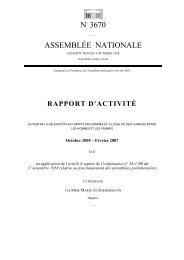


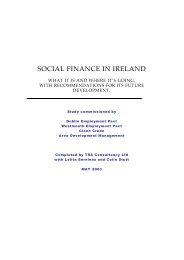




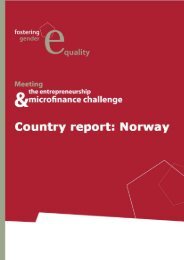


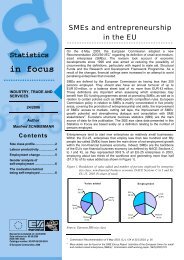
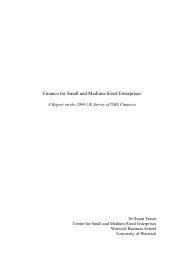
![Joint Report on Social Protection and Social Inclusion [2005]](https://img.yumpu.com/19580638/1/190x132/joint-report-on-social-protection-and-social-inclusion-2005.jpg?quality=85)
